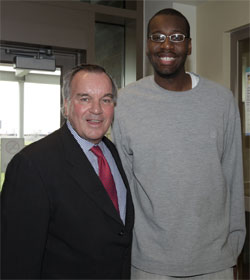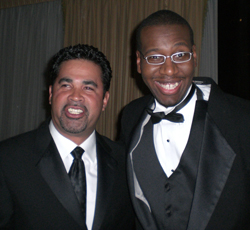Thanking Newsweek for providing a voice for people with autism
by Patricia Wright
Before heading off for a three-day weekend last week, I wrote a letter to the editor at Newsweek thanking the magazine for publishing Claudia Kalb’s article, Erasing Autism. The article featured 21-year-old Ari Ne’eman. Ne’eman has Asperger syndrome, and he founded the Autistic Self-Advocacy Network (ASAN) — a nonprofit organization run by and for people with autism.
He certainly puts up a fight. Ne’eman is officially studying political science at the University of Maryland, Baltimore County, but he also runs the Autistic Self-Advocacy Network, a nonprofit he founded in 2006, the year after he graduated from high school. The task he has taken on is daunting and controversial: he wants to change the way the world views autism. Autism is not a medical mystery that needs solving, he argues. It’s a disability, yes, but it’s also a different way of being, and “neurodiversity” should be accepted by society. Autistic people (he prefers this wording to “people with autism,” a term many parents use, because he considers the condition intrinsic to a person’s makeup) must be accommodated in the classroom and workplace and helped to
live independently as adults—and he is pushing to make this happen for everyone on the spectrum. They should also be listened to. “We’re having a national conversation about autism without the voices of people who should be at the center of that conversation,” he says.
Quality of life should be the message regarding autism. Quality of life can be measured by the ability to make choices — choices about where to work, where to live, how to recreate and with whom to spend time. Given appropriate services and supports, every person with autism can contribute to their life choices.
Quality choice-making requires that the individual with autism be involved. Every individual with autism must be afforded the dignity of making their life choices; individuals with autism must be at the table if their voice is to be heard. The social service community and society at-large must change to ensure that decisions are not being made for individuals with autism, but instead are being made with individuals with autism.
Mr. Ne’eman states his feelings on this subject eloquently and strongly — I wrote that letter to Newsweek’s editor to thank them for providing a voice for individuals with autism.







 In all the excitement of meeting White Sox players last week, and going to that White Sox game, I forgot to mention one very important thing in
In all the excitement of meeting White Sox players last week, and going to that White Sox game, I forgot to mention one very important thing in 